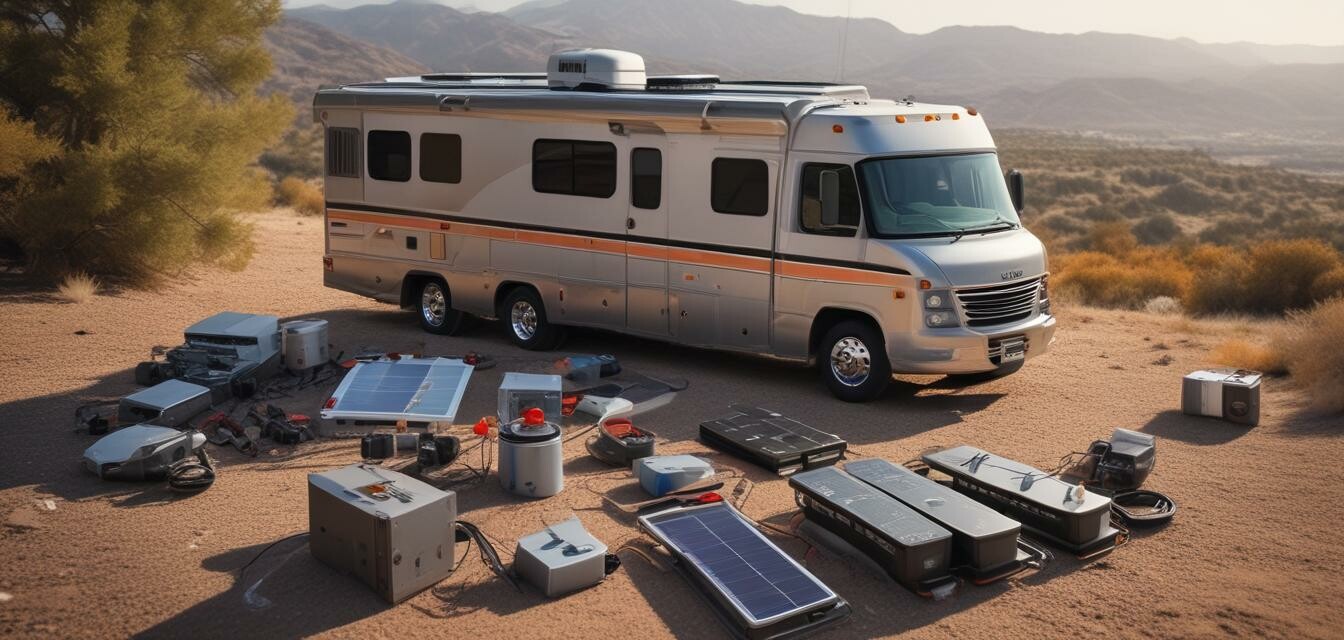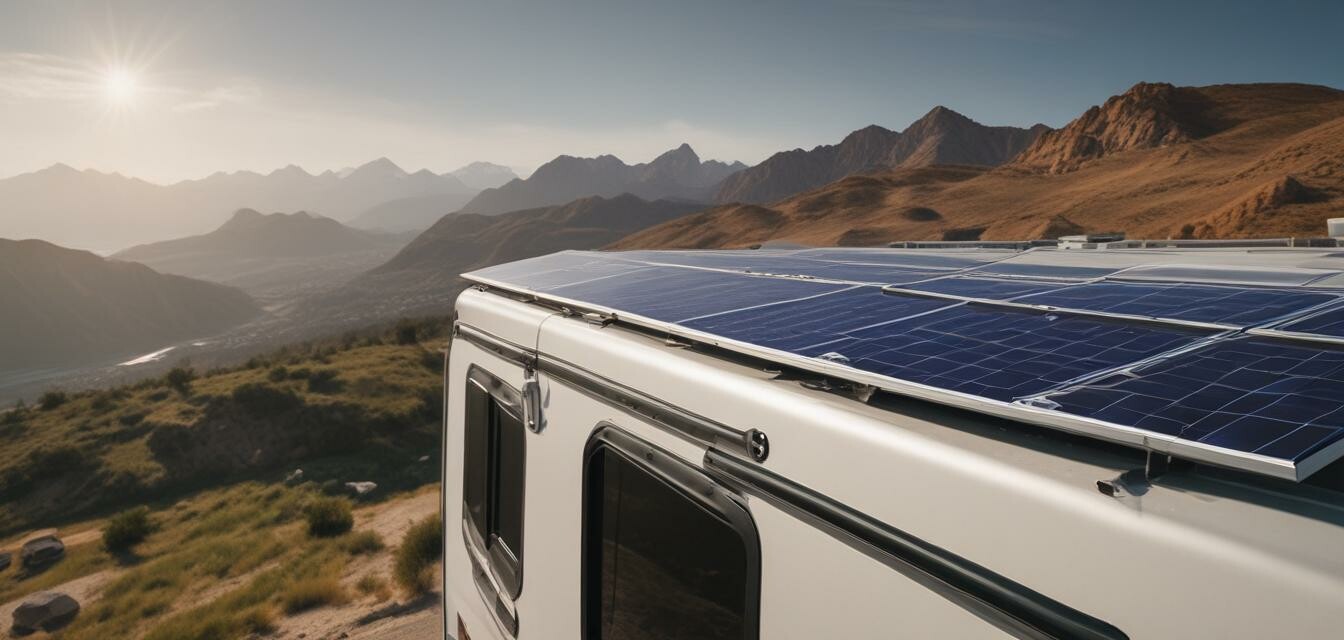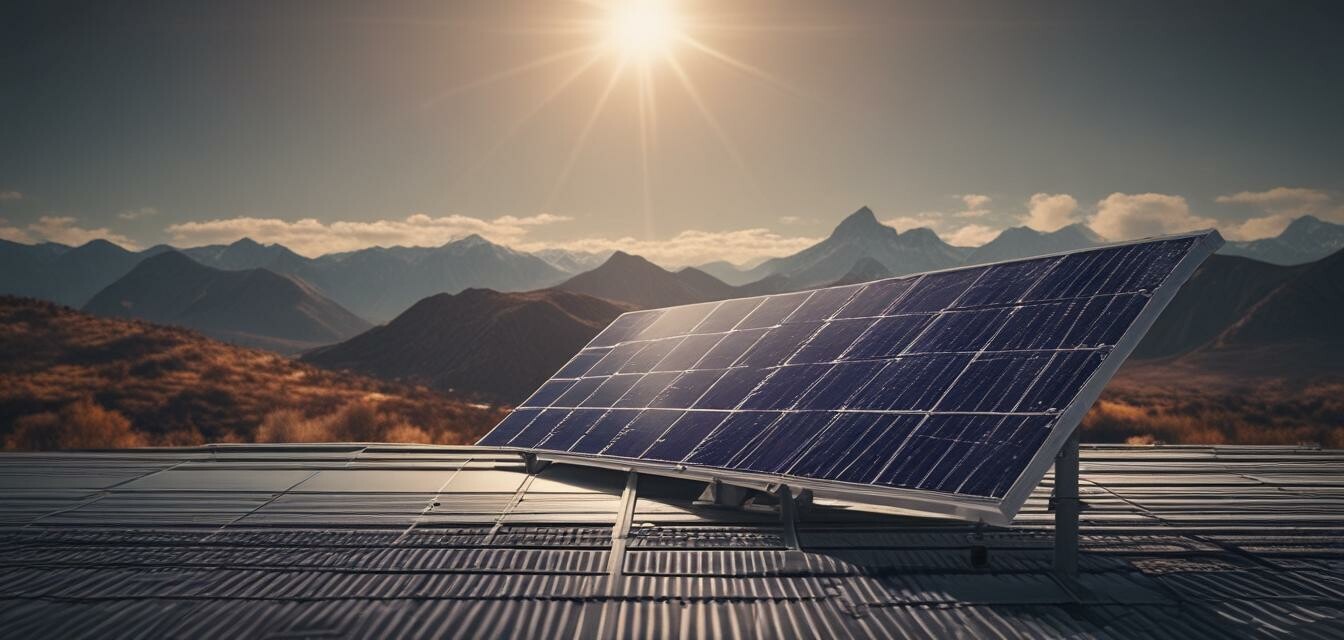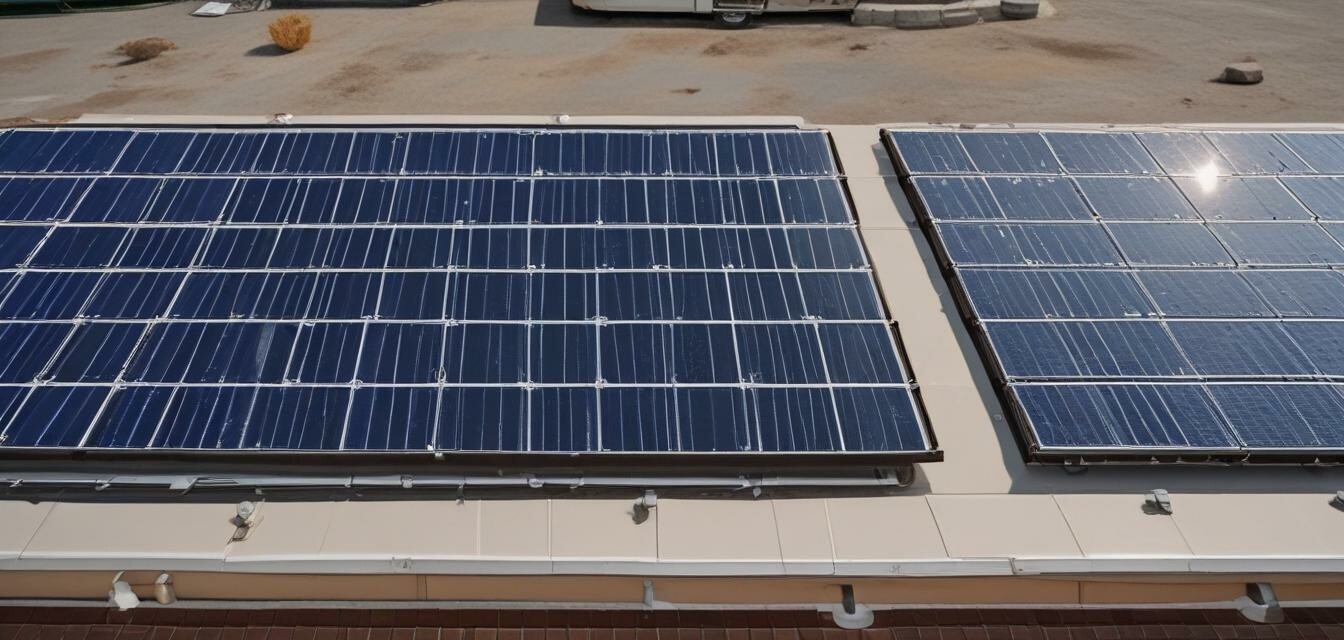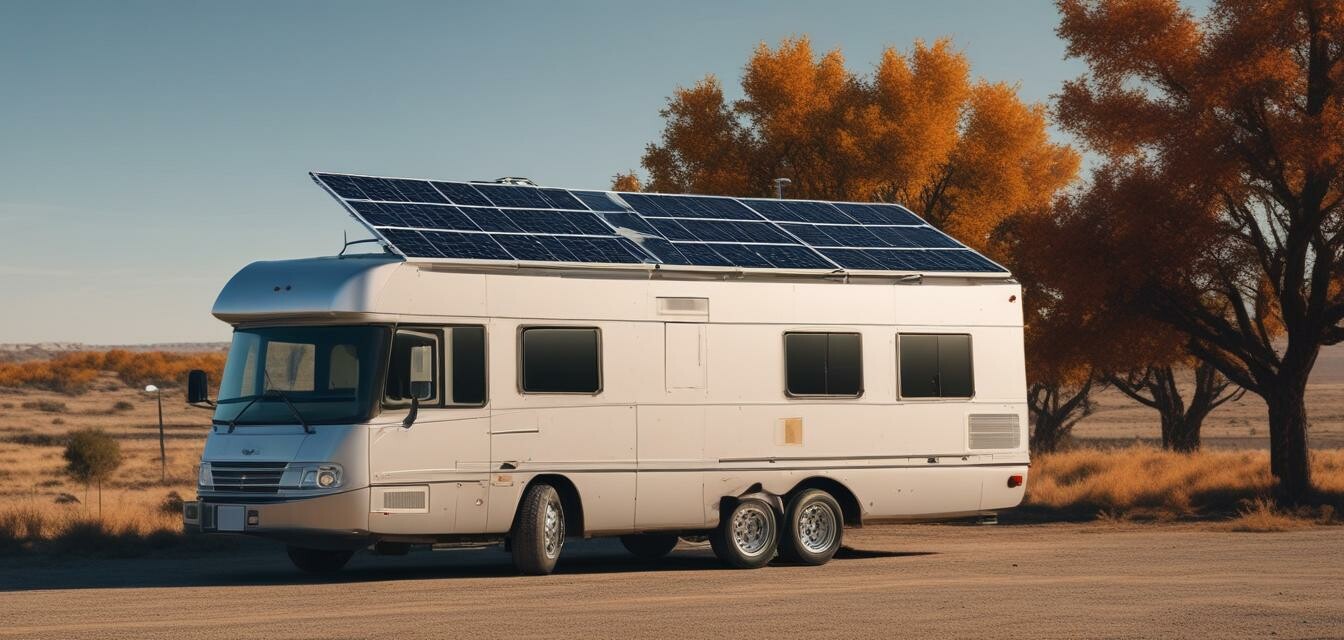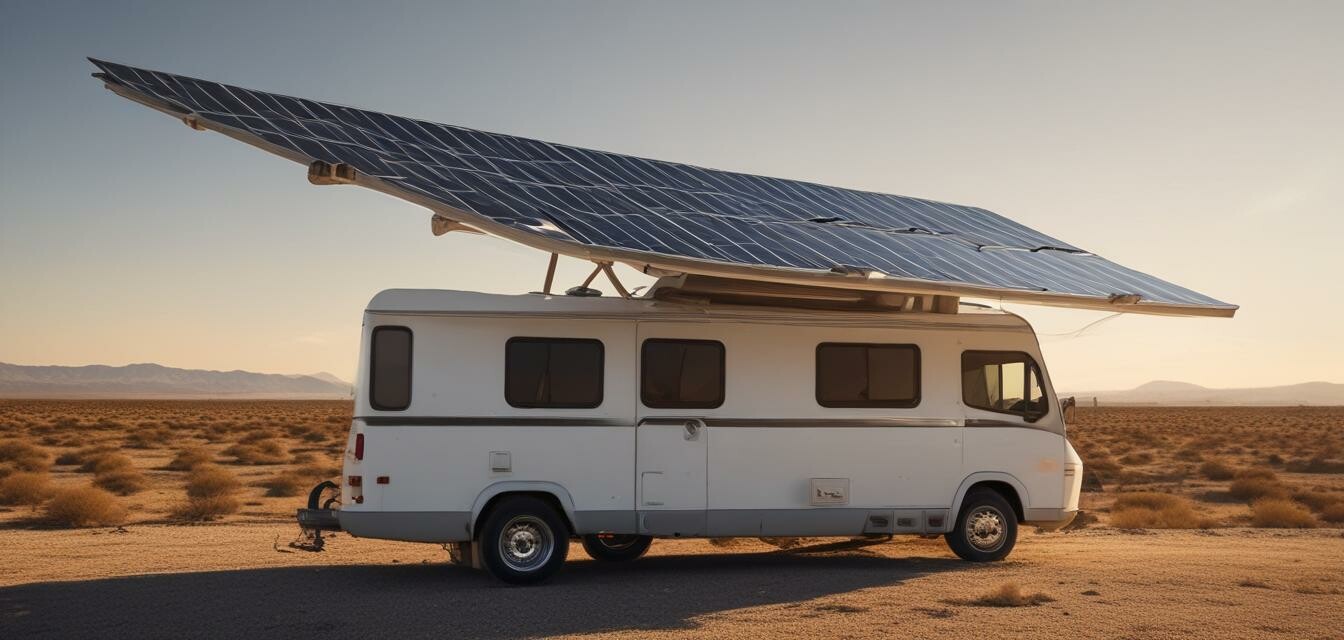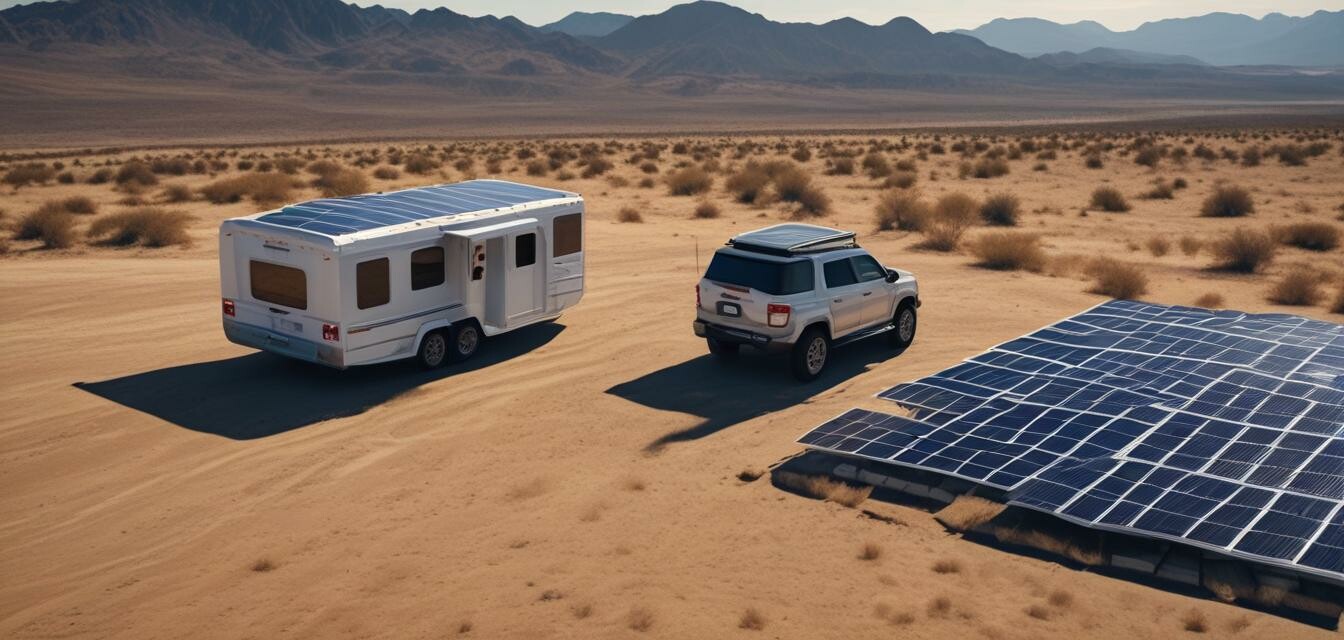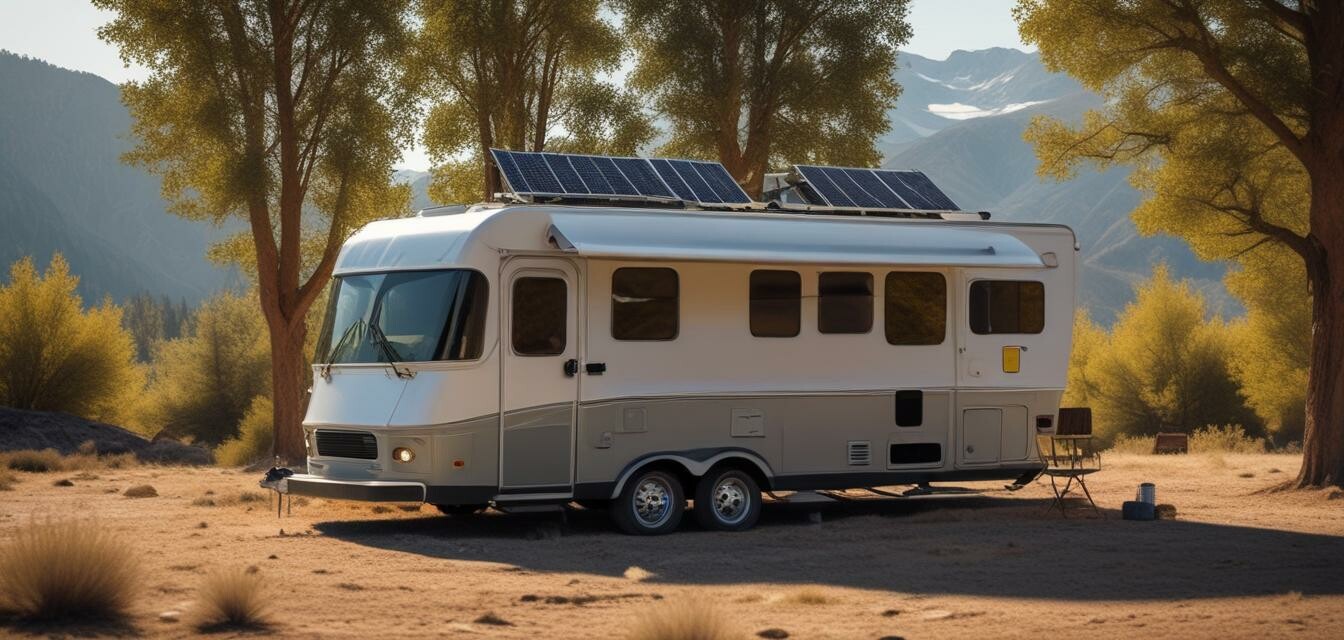
Real-life RV solar kit installations
Key Takeaways
- Solar kits can significantly enhance energy independence for RV owners.
- Choosing the right solar kit involves understanding personal energy needs.
- Successful installations often require planning and the right accessories.
In recent years, the demand for renewable energy solutions has surged, especially among RV owners looking to enhance their adventures while remaining energy independent. In this article, we’ll explore case studies and stories from real RV owners who have successfully installed solar kits. These insights will help guide your own decision if you’re considering a solar power system for your RV.
Why install a solar kit in your RV?
Installing a solar kit in your RV offers numerous benefits:
- Reduced reliance on traditional power sources
- Cost savings on fuel and campground fees
- Enhanced ability to boondock or camp off the grid
Exploring different solar kit options
There are various types of solar kits available for RVs, catering to different energy needs and budgets:
| Type of Solar Kit | Capacity | Ideal Usage |
|---|---|---|
| Portable Solar Panels | 100-200W | Weekend trips |
| Complete Solar Systems | 300-800W | Extended travel |
| Battery Systems | 200-600Ah | Power storage |
Case Studies of RV Solar Kit Installations
1. The Johnson family: A full-time RV experience
Transitioning to full-time RV living, the Johnsons needed a reliable energy source. They opted for a complete solar system that includes:
- 400W solar panels
- A 200Ah lithium battery system
- An MPPT solar charge controller
With this setup, they’ve enjoyed months of off-grid power, allowing them to explore remote national parks without worrying about electricity.
2. Mark's weekend warrior setup
Mark, an occasional RVer, installed a portable solar panel system for his weekend escapes. Here’s a summary of his setup:
| Component | Details |
|---|---|
| Solar Panel | 150W folding panel |
| Charge Controller | 10A PWM charge controller |
| Battery | 100Ah AGM battery |
This system has provided enough power for his lights and devices over multiple trips without the need for external hookups.
3. The Ramirez couple: Off-grid living
For the Ramirez family, off-grid living was non-negotiable. They installed a robust solar system that supports their daily needs:
- 600W rigid solar panels
- 400Ah lithium battery bank
- Inverter to convert DC to AC power
They report immense satisfaction, as they can run their appliances, laptops, and even a small air conditioner.
Tips for successful RV solar kit installations
- Evaluate your energy consumption before selecting a kit.
- Consider your RV’s roof space for panel installation.
- Invest in high-quality batteries to ensure longevity.
Understanding components of RV solar kits
To optimize your solar setup, it’s essential to understand the main components:
| Component | Function |
|---|---|
| Solar Panels | Convert sunlight into electricity. |
| Charge Controller | Regulates voltage and current coming from the panels. |
| Batteries | Store energy for later use. |
| Inverter | Converts stored DC power to AC power for household appliances. |
Importance of proper installation
A well-installed solar kit ensures efficiency and longevity. Here are some tips for a successful installation:
- Follow manufacturer guidelines closely for equipment setup.
- Use quality mounting hardware to secure solar panels.
- Test the system after installation to ensure everything works.
Conclusion: The future of RV solar
As more RV owners embrace solar energy, it's clear that investing in a solar kit can lead to memorable trips without the constraints of traditional energy sources. The case studies mentioned in this article demonstrate how solar installations can cater to various needs—whether you're a weekend adventurer or a full-time traveler.
Pros
- Increased energy independence
- Reduced fuel costs
- Environmentally friendly option
Cons
- Initial setup cost
- Requires space for installation
- Planning needed for effective use
Explore more about RV solar kits
For more detailed information on various components and systems, check out our other articles:
- Battery systems for RV solar
- Complete solar systems
- Inverters for RVs
- Mounting kits and accessories
- Portable solar panels
Final thoughts
Embracing solar energy in your RV is not just an investment in convenience; it's a step towards a sustainable and adventurous lifestyle. Learn from the stories shared here, and consider what solar energy can do for your RV experience.
